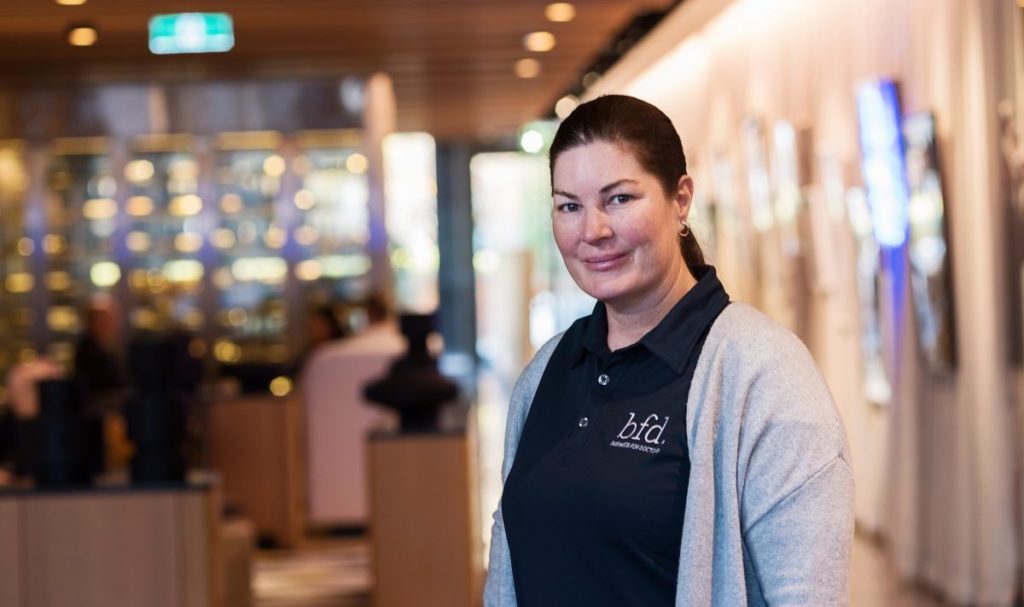A Conversation with Dr April Armstrong

Dr Sara Renwick was burnt out. As a doctor in the small town of Mallacoota, VIC, she was looking after an entire rural community of aged patients on her own. Perhaps worse still, not only did she not have enough time for herself, but she was struggling with the business side of things. Because most of her patients were 65+, she was using bulk billing, and it was barely enough to keep her small practice afloat.
Fortunately, Sara’s community was concerned enough to seek out a solution. At the 2017 RMA Conference, Mallacoota community group members explained Sara’s plight to Dr. April Armstrong, founder of the popular Facebook group, Business for Doctors. Armstrong asked the members to give Sara her phone number, and they caught up in-person later that day.
Sara meets April Armstrong
During their meeting, Sara said she felt guilty charging aged pensioners for her services. “I told her, ‘Sara, you need to look after yourself. If you don’t start charging patients for your services, if you don’t have money to pay your bills, if you can’t run your practice as a business, you’re going to leave Mallacoota, and they’re not going to have a doctor”, Armstrong recalls. She offered Sara suggestions for a more sustainable business model by charging fees for her services.
Which is exactly what Sara ended up doing. Although initially the community wasn’t thrilled at the thought of paying fees for specific services, they came around when they realised the alternative was potentially not having a doctor in the area at all. That would mean having to travel two hours to see the nearest medical professional.
Over time, with the help of the Business for Doctors community, Sara turned things around, transitioning her practice from a bulk billing clinic, struggling to make ends meet, to a profitable private billing clinic. Dr. April Armstrong says she sees this type of thing all the time. She explains, “[Doctors] tend to work in the business, rather than on the business. They really want their own practice and their own business but they don’t want the responsibility of actually running it, because they really want to be a doctor.
“But the reality is you need a substantial amount of time when you’re running a business to actually work on the business, to have plans, marketing, KPIs, staff management, and advertising”.
Armstrong should know. As a rural doctor herself with a surgery practice in Kalgoorlie, she’s had to become accustomed to managing her own practice. Fortunately, she’s done an exemplary job and has been nominated for multiple Telstra business awards.
Founding Business for Doctors
It was actually one of those Telstra awards that was the inspiration behind Business for Doctors. Dr. Armstrong was filling out paperwork for one of the awards when she realised that other doctors could benefit from the information she compiled.
So in May 2015, she began posting tax tips on another Facebook page, explaining how she was maximising her tax deductions. Much to her surprise, reader engagement was enormous. Clearly, this was information doctors needed but lacked ready access to.
Based on the enthusiasm from other medical professionals, Armstrong decided to setup the Business for Doctors Facebook group in September, 2015. Initially, the group only had 30 members — her friends from her university days. But interest in the group exploded and by July 2016, it had grown to 1,000 members.
Fast forward to 2018 and Business For Doctors has 15,000+ members and is seeing 1,000 new members join the group each month. Clearly, the large, active member base shows what a huge need there is for this type of information in the medical community.
As big as the group has grown, Dr. Armstrong no longer manages it alone. Today, Business for Doctors has a team of people supporting it, which includes the group’s administrators and an 8-member advisory committee, including five GPs, one specialist and two people with backgrounds in banking.
The role of Business for Doctors
The Business for Doctors Facebook group helps doctors and other medical professionals manage and run medical practices more efficiently. The group doesn’t allow personal topics or political conversations. Instead, the focus is solely on business.
Armstrong says, “The conversation has to be about business and it can be anything to do with business — banking, finance, insurance, superannuation, investments, mortgage rates, mortgage brokers, investment advice etc. It might be about employment contracts, business management, managing KPIs and staff conflicts, or legal matters.
Armstrong explains, “What really makes the group so unique is that these topics are often considered taboo — you’re not allowed to publicly talk about revenue and business as a health professional. But by bringing people together to actually talk about this taboo subject, it’s bringing it to the forefront.”
She adds, “The biggest part for me is making sure that as a collaborative group, we support each other with our knowledge so people who have 25 years of experience in business can pass that along to young junior people who are coming up the ranks and opening up their own practices. [These more senior professionals] can give them some insight into the difficulties of managing business and practice.
“[Business for Doctors] is unique, because it covers doctors from all specialties, from all levels — you’ve got interns mixing with practice owners of 25 years and neurosurgeons mixing with orthopedic surgeons and GPs and so on. So it’s a really unique group where everyone can voice an opinion and contribute in some way.”
Those insights aren’t limited to online exchanges. Business for Doctors also periodically holds workshops for medical professionals. When asked about the nature of the workshops, Dr. Armstrong responded, “A lot of people think they’re coming to our workshops to learn how to make money, but we’re actually showing them how to make more time — that gives them more time for their patients, more time for their family, and more time for self-care which actually makes them a better doctor. The money thing is actually secondary to performing your duties as best you can.”
A bright future
In addition to the various workshops it holds, Business for Doctors also holds conferences and networking events. When asked what was on the horizon, Dr. Armstrong said, “A couple of really interesting things are coming up. We’re continuing with our conferences and education sessions, but we’re also looking at networking with other doctors through social events both locally and internationally.
“So we had a cocktail evening in Perth where we invited allied health and local doctors to come together. There were about 50 of us and we just had a bit of a chat about what Business for Doctors does and how we can support each other. It’s really amazing how doctors crave the medical company of other doctors and colleagues because, especially in general practice and private practice, it’s incredibly lonely.
“We’ve also got a cruise coming up, which leaves from Sydney, and we’re going to Japan in February next year. Plus there is our annual conference. This year the conference is in Sydney from June 1-3, 2018, where we’ve got nearly 90 workshops over three days. So six concurrent workshops, keynote speakers, 450 people at the Four Seasons. Having an event like that just sort of highlights the way that doctors are really craving this information and education.”
Armstrong adds, “I’ve also just started an importing business to get high-quality surgical instruments at really reduced prices, so we can hopefully help reduce the environmental impact on disposable instruments in general practice.”
As exciting as all those initiatives sound, the good news doesn’t end there. Recently, Business for Doctors was selected as a national finalist in the Australian Small Business Champion Awards 2017, and the group has reached stage 2 of the Australian Telstra Business Awards. In the near future, they’ll find out if they’re state finalists.
How to join Business for Doctors
If you’re interested in joining Business for Doctors, you can submit your request on the Facebook group page. Armstrong says, “Only doctors can be part of the group. So you have to have a Facebook page as a medical practitioner. You’ll also need to answer three questions when you visit the page. We also ask you for your registration number because we verify our doctors are registered. We have New Zealand doctors and U.K. doctors who are planning on coming to Australia in the group as well.
“Our membership base is around 15,600 today and we welcome 1,000 new members each month. All of our current members are generating 26,000-28,000 new posts monthly.”
In addition to its vast membership base, Business for Doctors maintains partnerships with organisations like Virgin Australia, Medibank Private, Tego Insurance, Employsure, and Accor Hotel Group.
Back to business
Business for Doctors is an incredible resource for any busy MD trying to operate a successful practice. We need look no further than the story of Sara Renwick to see evidence of that.
Today Sara charges fees for her services and she runs a profitable business. She also gets to enjoy more time off to surf, ride horses and spend time with her family.
Perhaps most importantly, these changes reignited her passion for being a doctor. She plans to speak at an upcoming Business for Doctors conference about changing a practice from bulk billing into a viable business model.
Dr. April Armstrong stayed in touch with her throughout this transformation — she supported Sara through social media, phone calls and occasional run-ins at conferences, reminding Sara of her commitment to making her practice work. This type of support is just one reason Business for Doctors is such a valuable resource for doctors.
However, doctors aren’t the only ones who can benefit from this group — patients can as well. One thing that seems clear from Sara’s story is that when a doctor is overworked and struggling to maintain their practice, their happiness plummets. Unfortunately, this can lead to doctors abandoning the medical profession altogether.
By solving these problems — through a group like Business for Doctors — medical professionals are more likely to remain satisfied with their work, and their contentment is likely to translate to better patient care. Better patient care can in turn, increase patient engagement. Clearly, Business for Doctors is a win-win for everyone involved


